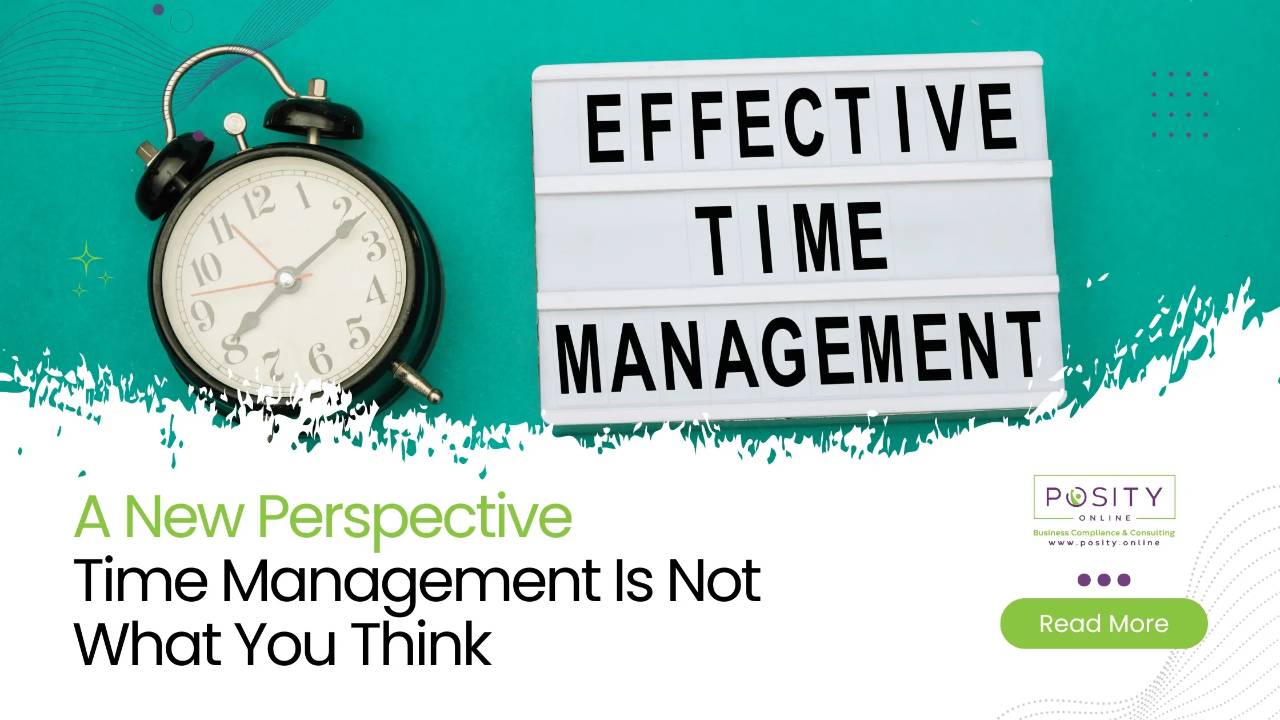Time Management Is Not What You Think: A New Perspective

Time management is often seen as a structured approach to organising tasks, setting deadlines, and following rigid schedules.
The traditional view promotes to-do lists, calendars, and time-blocking techniques as the ultimate solutions for productivity. But if these strategies worked perfectly, why do so many people still feel overwhelmed, constantly running out of time?

The real challenge is not just managing time but managing energy, focus, and priorities effectively. Productivity isn’t about working harder or faster—it’s about making smarter choices with your available time and ensuring you work on the right things at the right moments.
At Posity Online, we help businesses and NDIS providers streamline operations, reduce unnecessary workloads, and optimise productivity through business coaching, process automation, and compliance support.
The Myth of “Getting More Done”
Many believe that effective time management means packing as many tasks as possible into their day. However, this approach often leads to burnout, stress, and lower quality work.
A high-performing day isn’t one where every minute is filled with tasks. Instead, it’s about ensuring that the most important and impactful work gets done while eliminating distractions.
The Role of Prioritisation Over Time Blocking
While time-blocking can be useful, it’s often too rigid and doesn’t account for real-life challenges. Instead of structuring every minute of the day, a better approach is to focus on high-priority tasks that create the most value.

Why Prioritisation Works Better
- The 80/20 Rule (Pareto Principle):
20% of efforts produce 80% of results. Identifying and prioritising these high-value tasks maximises productivity. - Filtering Out Low-Value Work:
Not all tasks are equally important. Learning to differentiate between essential and non-essential tasks prevents wasted effort. - Adapting to Real-Life Situations:
Unexpected meetings, personal responsibilities, or mental fatigue can disrupt rigid schedules. Prioritisation allows for flexibility while keeping the focus on high-impact work.
Instead of filling time with tasks, focus on what truly moves the needle in your personal and professional life.
For NDIS providers, prioritisation also means focusing on compliance, participant engagement, and service quality rather than getting bogged down in repetitive administrative work. Posity Online offers NDIS consulting and digital solutions to streamline processes and improve efficiency.
Energy Management vs. Time Management
One of the biggest mistakes people make is assuming that all hours of the day are equal. The truth is, our energy levels fluctuate, and the key to productivity is working with those cycles, not against them.
Posity Online’s digital automation services can also help businesses handle repetitive tasks, allowing professionals to focus on high-value work during their most productive hours.
Energy Management vs. Time Management
Not all hours of the day are equal. The key to real productivity is working with your energy levels rather than against them.
The Power of Saying “No”
Time management isn’t just about organising tasks—it’s also about protecting your time from distractions and low-priority commitments.
How Posity Online Helps You Focus on What Matters
We assist NDIS providers and business owners in eliminating unnecessary work by automating repetitive tasks, simplifying compliance, and improving operational efficiency. This allows professionals to focus on what truly drives results.
Rethinking Deadlines and Urgency
A culture of constant urgency and last-minute pressure creates stress, lower-quality work, and burnout. While deadlines are necessary, constantly working under self-imposed urgency can be counterproductive.
Balancing urgency with realistic pacing improves both efficiency and well-being.
Tools and Strategies for Smarter Work
Business Coaching and Productivity Training
Business coaching helps professionals develop better systems, habits, and mindset shifts to maximise efficiency. It provides guidance on identifying priorities, managing workload, and eliminating inefficiencies.
Bottomline
Time management isn’t about filling every minute with tasks—it’s about making intentional choices about where to focus your energy and attention. By prioritising high-impact tasks, working with energy levels, setting boundaries, and avoiding unnecessary urgency, you can boost productivity without feeling constantly overwhelmed.
Take Action Today!
Start applying these strategies and see how shifting from time-based productivity to focus-based efficiency transforms your workflow. Work smarter, not harder!
We love helping businesses become Registered NDIS Providers.
Ready to simplify your journey? Book a FREE consultation now! 👇







